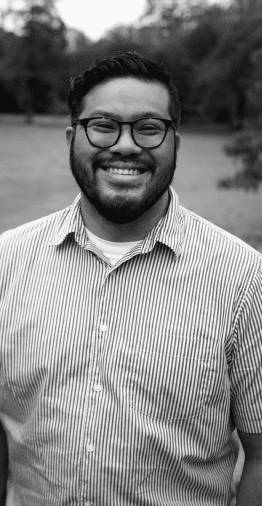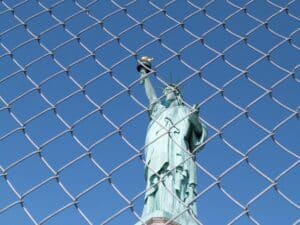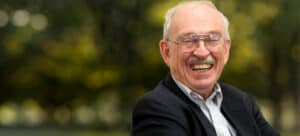 It’s May in academia, which means wrapping up the semester, celebrating graduates, and working on syllabi for the upcoming school year. It also happens to be AAPI heritage month! While I’m not teaching an Asian American theology class this upcoming year, this is a list of four books that have been incredibly important to me as an Asian American theologian, titles that I would put on my syllabus in the future.
It’s May in academia, which means wrapping up the semester, celebrating graduates, and working on syllabi for the upcoming school year. It also happens to be AAPI heritage month! While I’m not teaching an Asian American theology class this upcoming year, this is a list of four books that have been incredibly important to me as an Asian American theologian, titles that I would put on my syllabus in the future.
A couple of notes: First, this is not an attempt at an exhaustive—or even broad—list of the still-forming canon of Asian/Asian American theology. If I write this list tomorrow, or if I wrote it yesterday, it might very well be different. Second, most of my work has focused on Asian/Asian American thinkers/theologians. I need to read more Pacific Islander work! If you have any suggestions, please send them my way.
Heart of the Cross by Wonhee Anne Joh
This book blew my mind open to the possibilities of how we think about Christ in light of the cross. Using postcolonial theory, psychoanalysis, and Korean concepts like jeong and han, Joh presses readers to take seriously both the feminist and Womanist critique of redemptive suffering that is rightfully aimed at Christologies used to justify gender oppression, while challenging readers to consider that redemption may still be found in the stickiness and resoluteness of God’s love amidst the persistent realities of suffering still present in the world today.
Theologians are always thinking through the sources of their God-talk (e.g., Scripture, traditions, etc.) As other reflecting communities (like the feminist and Black theological traditions) have used experience as a theological source, this book presses us to take seriously the experience of Asian and Asian Americans as resources for theological reflection. Using autobiographical theology, this book significantly added to the archive that Asian American theologians draw from and provided a blueprint for a productive and creative mode of theologizing for, but more importantly with, our communities.
When we talk about the harmful model minority myth, what specifically are the psychological dynamics at play? This book creatively extends Sigmund Freud’s concept of melancholia (mourning without end) and seeks to explain the high rates of suicide among Asian Americans by positing the racial melancholia entailed in the Asian American diasporic experience. Any theological reflection on Asian Americans’ experience of racialization would benefit greatly from this important work.
A Theology of Southeast Asia: Liberation-Postcolonial Ethics in the Philippines by Agnes M. Brazal
Dr. Brazal is one of my theological sheroes. As a Catholic theologian, she gives us theological and ethical frameworks to think about gender equality, ecological justice, migration, and cyberethics. Her engagement with these topics is grounded within the issues and concerns that she sees facing her communities in the Philippines. This book presses us to consider how we might allow transnational concerns and movements to form our theological imagination.
What would your list be? Feel free to share your ideas here.
 David de Leon is a doctoral student studying systematic theology at Fordham University in New York City. A child of Pilipino immigrants, David grew up in Vallejo, CA. For 12 years, he worked in university campus ministry, pastoring students and mentoring other campus ministers. He has extensive experience in directing global justice immersion programs. In 2021, he received his Master of Divinity degree from Yale Divinity School. He writes, teaches, and reflects on Pilipino/Pilipino American/Asian/Asian American identity, faith, and colonial histories. He is currently Social Media Manager and Content Specialist for Christians for Social Action.
David de Leon is a doctoral student studying systematic theology at Fordham University in New York City. A child of Pilipino immigrants, David grew up in Vallejo, CA. For 12 years, he worked in university campus ministry, pastoring students and mentoring other campus ministers. He has extensive experience in directing global justice immersion programs. In 2021, he received his Master of Divinity degree from Yale Divinity School. He writes, teaches, and reflects on Pilipino/Pilipino American/Asian/Asian American identity, faith, and colonial histories. He is currently Social Media Manager and Content Specialist for Christians for Social Action.


